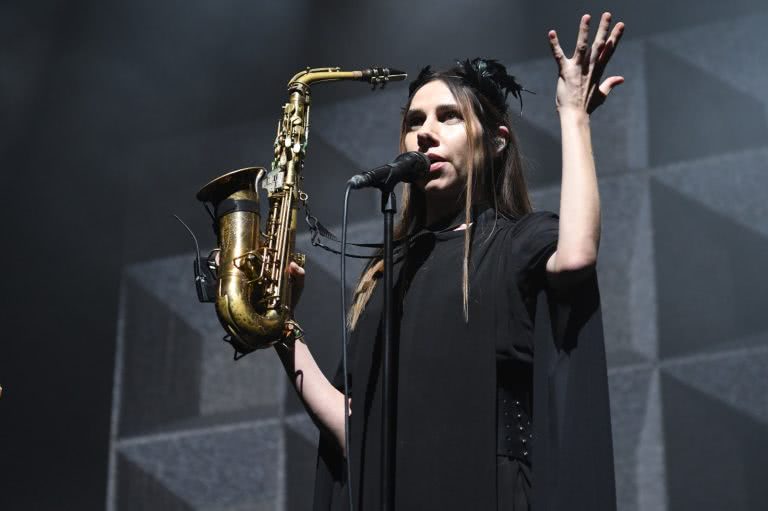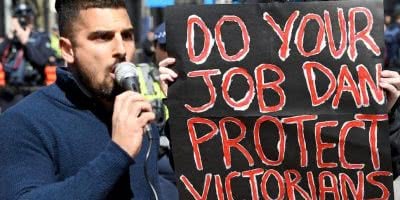Reviewed onSunday January 22 (photo by Ashley Mar)
12 hours before PJ Harvey took to the stage in Sydney, neo-Nazi and so-called “Karl Marx of the right” Richard Spencer was being punched in the head. The incident caused an almost immediate outburst of hand-wringing from the left, and the relative merit of beating up fascists was quickly disseminated and discussed online. Ultimately, the question circulating was thus: is it acceptable for those resisting conservatism to co-opt the violence and militarism more often favoured by fascists? Or is such extremism merely a way of playing into the hands of those in power?
Harvey, it seems, has no time for such questions. Or at least, if she had them, they were resolved in her mind a long time ago. Entering stage right accompanied by marching drummers, and dressed in black, she was every inch the general; a vision of political might, armed with a glinting saxophone. This was not a protest singer playing balladeer, or a hippie Dylan type with a flower tucked behind one ear and nylon-string perched upon crossed legs. Harvey’s stance was of a conqueror, and her near-impeccable performance profited from a not inconsiderable jolt of stylised aggression.
Appropriately, the setlist heavily favoured the iron-clad tracks that make up her newest record The Hope Six Demolition Project, though by the time the night was done her entire back catalogue had been mined. Her face stony, she fired off bolstering track after bolstering track, the vicious tunes given new life by a highly trained backing band clad also in uniform black.
The banter, as ever with Harvey, was non-existent, with the exception of a one-by-one introduction to her fellow musicians that felt as precise as a roll call. The humanity and life were in the songs themselves – though admittedly, the presiding theme of the evening was pain. As ‘The Ministry Of Social Affairs’ careened into ‘The Words That Maketh Murder’, Harvey’s outrage became almost corporeal, and her waved, stunted gestures seemed like the flailing of someone too angry to speak.
It ended with a fade down to silence, the brooding and brutal ‘Is This Desire?’ crushing the audience down to ankle height and leaving an oddly thrilling sense of unfinished business thick in the room. Nobody seemed to relax – nobody seemed capable of it. And on the buses and trains home, clenched fists sat in laps, as precise and bone-hard as one of Harvey’s songs.

































